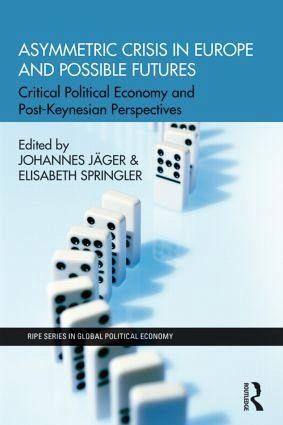
Asymmetric Crisis in Europe and Possible Futures
Critical Political Economy and Post-Keynesian Perspectives
Herausgeber: Jäger, Johannes; Springler, Elisabeth
Versandkostenfrei!
Versandfertig in 1-2 Wochen
177,99 €
inkl. MwSt.
Weitere Ausgaben:

PAYBACK Punkte
89 °P sammeln!
The crisis in Europe is often discussed as a crisis of European integration or a crisis of national economies within Europe. Both the 'methodological Europeanism' and 'methodological nationalism' miss out the important links between economic and political processes at different spatial scales within Europe, and therefore, asymmetries and phenomena of uneven development. In addition, a discussion of possible scenarios which systematically addresses the implications of anti-crisis policies is missing. This volume seeks to close this gap by systematically integrating the analysis of economic poli...
The crisis in Europe is often discussed as a crisis of European integration or a crisis of national economies within Europe. Both the 'methodological Europeanism' and 'methodological nationalism' miss out the important links between economic and political processes at different spatial scales within Europe, and therefore, asymmetries and phenomena of uneven development. In addition, a discussion of possible scenarios which systematically addresses the implications of anti-crisis policies is missing. This volume seeks to close this gap by systematically integrating the analysis of economic policy or 'technical' solutions to the crisis within a broader framework of political economy. It argues that combining critical political economy approaches and post-Keynesian perspectives allows for a systematic understanding of the economic and political dimensions of the crisis. Although both approaches have the capacity to deal with asymmetries and uneven development, the heterogeneity in Europe has been an often largely neglected dimension of analysis. However, this recent crisis has shown that this is an essential dimension which has to be addressed in order to better understand the dynamics of European development and integration. Hence, this book aims to deal with asymmetries in Europe and to bridge the gap between the two perspectives. This work will initiate an integrative debate that is crucial for a deeper understanding of the current crisis and is an important resource for all students and scholars of IPE, European political economy and European politics.














